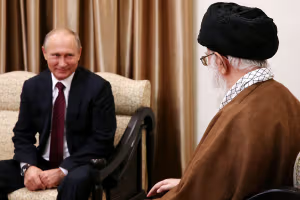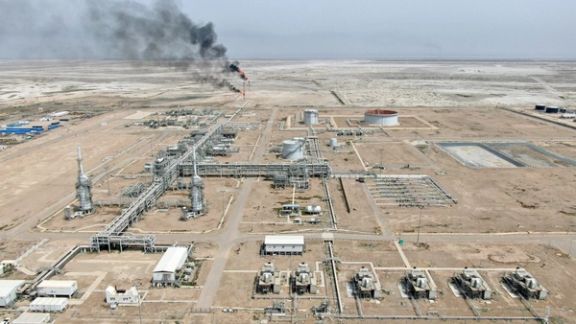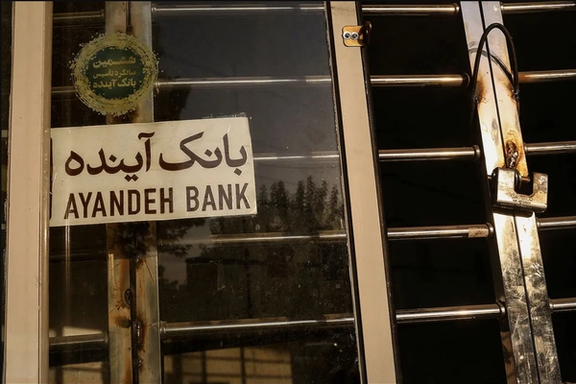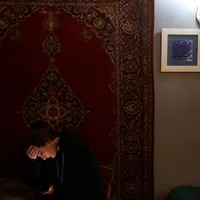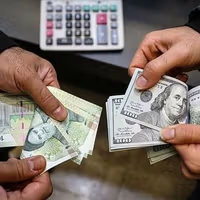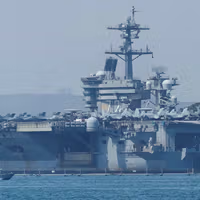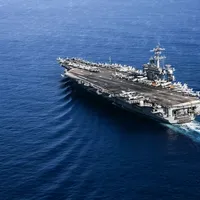Enthusiasm for Western-style festivities has quietly grown in Iran over the past decade.
Despite frequent crackdowns, cafés and restaurants in Tehran and other cities have increasingly hosted Christmas and Valentine’s events, with shopfronts displaying seasonal decorations once unseen in the Islamic Republic.
Halloween observance has gathered pace along with its popularity with children and teenagers.
"This year, all the cafes and restaurants in Mehrshahr have decorated for Halloween in such a way that it feels like I should just wait for the kids to show up at our door soon and say 'Trick or treat!'" one user posted on X, referring to a district in norther Iran.
In 2023, the government-run Borna News outlet reported that some private elementary schools in affluent north Tehran had held discreet Halloween gatherings.
Parents told the outlet that teachers had requested pumpkins and other items to hold Halloween parties on school grounds. The report added that much of the paraphernalia was imported, but some was produced in “underground workshops.”
So when Iran’s Chamber of Guilds announced an official ban on “any and all Halloween festivities” this week, it sounded almost comical to many.
The directive warned that “ceremonies, gatherings, advertising or the sale” of items related to Halloween were prohibited in all public and business venues.
The move, it said, aimed to protect “cultural, religious, and social values.”
Reports on social media suggest that many cafés and restaurants quickly cancelled their planned Halloween events after the warning.
In the southern city of Ahvaz, Mohammad Lari described taking his child to an amusement park that had organized a Halloween-themed play event.
“I took the kid to one of those play venues. A bunch of wild people showed up, upsetting the kids and families because of the Halloween theme,” he wrote on X, in apparent reference to morality police. “People got so upset it would’ve turned into a fight if there weren't a few sane people around.”
The Chamber’s notice came only days after cafés and small shops in Tehran’s traditional bazaars had filled their windows with ghost masks and orange décor.
Many had already launched Halloween-themed menus and cakes before the ban took effect, hoping to take advantage of consumer demand for a fresh new holiday as sanctions and mismanagement have driven up costs of living and hit sales.
Backlash and online ridicule
The announcement triggered an immediate outcry online, reviving debates over the state’s priorities as hardships mount.
Mihan Media, a dissident Instagram account, mocked the order, describing it as "a move that perfectly captures the Islamic Republic’s fear of plastic pumpkins and fake spiderwebs."
"The regime, ever vigilant against witches, ghouls and Western consumerism, seems to have concluded that a few teenagers in costume pose a greater threat to Iran’s moral order than corruption, inflation or repression."
“While the world laughs at imaginary monsters," it added," the Islamic Republic is busy chasing imaginary cultural ones — proving that nothing frightens it more than joy itself.”
On X, many used irony to highlight the country’s economic hardship.
“They say holding Halloween celebrations is forbidden and will be dealt with," user Alireza Yahyaei wrote.
"In a country where buying a home is impossible (for many), even if one saves for it for a century, and food inflation is at 100%, is there even a need for Halloween? The nightmare the world celebrates in one night, we live every day!”
Others pointed to Iran’s cultural contradictions. Sadegh Maktabi, a teacher, wrote: “Iranian society is the strangest collage in the world; one day it celebrates the birth of Hazrat Zaynab (graddaughter of the Prophet Muhammad), the next morning it honors Cyrus (the Great), and at night it celebrates Halloween."
"Islamism, nationalism and Westernism, all together,” he added.






